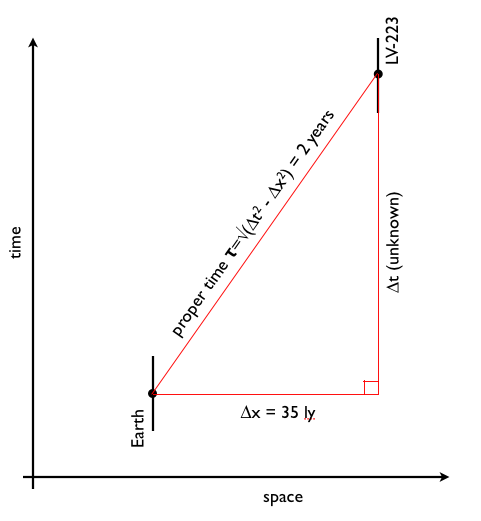Time slows the faster you go, so perhaps going 35 light-years in "2 years" is actually do-able, but how fast would you actually be going? If
$$t' = \frac{t}{\sqrt{1-\frac{v^2}{c^2}}}\\ $$
If we say $t' = 2 \text{ years}$, and $x = 35\text{ light-years}$ (and $t = x/v$), it's fairly basic to get to
$$\left(\frac{x}{t'}\right)^2 = {v^2\left(1-\frac{v^2}{c^2}\right)} = v^2-\frac{v^4}{c^2}$$
However, time has worn on my math to such a degree that I'm now miffed. I can't figure out how to get an equation in terms of $v$.

